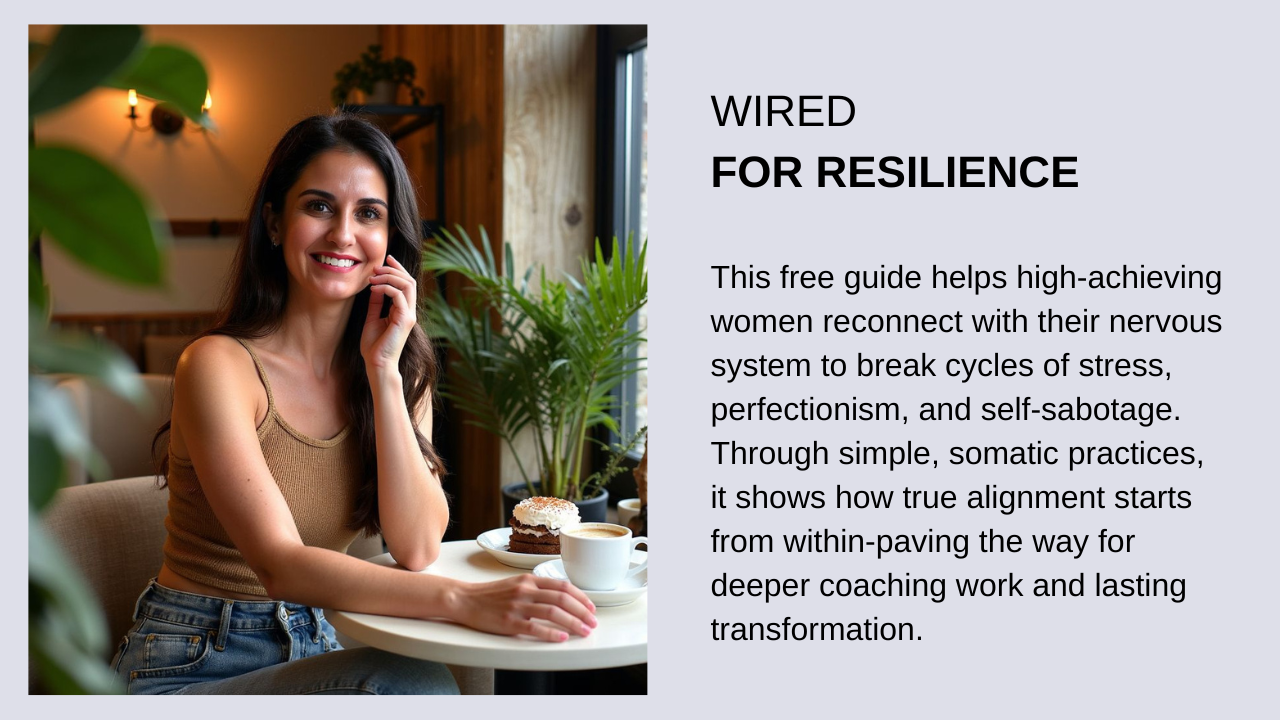What Is Somatic Experiencing? How It Works, Who It Helps, and What to Expect
Sep 10, 2025
Somatic Experiencing® (SE) has been gaining attention as a powerful body-based approach to healing trauma and stress. Unlike traditional talk therapy, SE focuses less on retelling the story and more on what the body is holding onto. In this post, I’ll break down the most common questions about SE and give you a clear picture of what it is, how it works, and what it feels like.
What is Somatic Experiencing?
Somatic Experiencing is a therapeutic approach developed by Dr. Peter Levine. It’s based on the understanding that trauma isn’t only in our memories it’s stored in the body’s nervous system. When we go through overwhelming events, the body often gets stuck in fight, flight, or freeze mode. SE helps release that stuck energy and restore a sense of safety and regulation.
How Does Somatic Experiencing Work?
Instead of diving straight into the story of what happened, SE guides you to notice body sensations in a slow, supported way. For example, you might bring gentle awareness to tightness in your chest or heaviness in your stomach. By paying attention to these physical cues and learning to pendulate between tension and safety the nervous system gradually discharges the survival energy it’s been holding onto.
Over time, this helps the body complete old stress responses, so you feel more present, calm, and resilient.
How to Do Somatic Experiencing
SE is most often done with a trained practitioner, but there are small ways you can bring somatic awareness into your daily life:
-
Pause and scan your body. Notice sensations without judgment.
-
Name what you feel. “I notice heat in my face,” or “I notice my shoulders tightening.”
-
Pendulate. Move your awareness between a place of tension and a place that feels neutral or good. This teaches your system it can shift states.
-
Ground. Feel your feet on the floor or your back supported by a chair to remind your body it is safe now.
These are simple starting points, though working with a practitioner allows for deeper release and integration.
Who is Somatic Experiencing For?
SE can benefit anyone who has experienced trauma, stress, or ongoing dysregulation. This includes people recovering from:
-
Childhood trauma or neglect
-
Accidents, surgeries, or medical procedures
-
Chronic stress and burnout
-
Anxiety, panic, or hypervigilance
-
Feeling “shut down” or disconnected
It’s also supportive for high-achievers and leaders who want to increase resilience, capacity, and presence in their daily lives.
What is an Example of Somatic Experiencing?
Imagine someone who survived a car accident. Every time they hear screeching tires, their body tenses up, even years later. In a session, instead of reliving the accident, they might be guided to notice their shoulders tightening when they hear that sound. As they stay with the sensation and then shift attention to their feet on the ground their body may naturally release through trembling, deep breaths, or warmth. This discharge signals that the survival energy is finally moving through.
What is a Somatic Release, and What Does It Feel Like?
A somatic release can feel like trembling, shaking, warmth, tears, sighing, or even a deep yawn. It’s the body’s way of completing what it couldn’t at the time of the traumatic event. Most people describe it as a sense of relief, calm, or more spaciousness in their body afterward.
What Are the Criticisms of Somatic Experiencing?
Like many therapeutic approaches, SE isn’t without criticism. Some argue that more research is needed to fully validate its long-term outcomes. Others note that because it’s highly dependent on the practitioner’s skill, results can vary. However, many people who haven’t found relief through traditional talk therapy report profound shifts with SE.
Final Thoughts
Somatic Experiencing is not about “fixing” you. It’s about teaching your body how to feel safe again. By gently releasing stored survival energy, SE helps people move out of survival mode and into a steadier, more connected life.
If you’ve tried mindset work or talk therapy and felt stuck, SE may be the missing link that helps you finally feel at home in your body.
👉 To learn more about how parts work can support your growth, book a free call with Karen Ann.
👉 To learn more about parts work therapy follow Karen Ann Wellness.
Stay connected with news and updates!
Join our mailing list to receive the latest news and updates from our team.
Don't worry, your information will not be shared.
We hate SPAM. We will never sell your information, for any reason.


